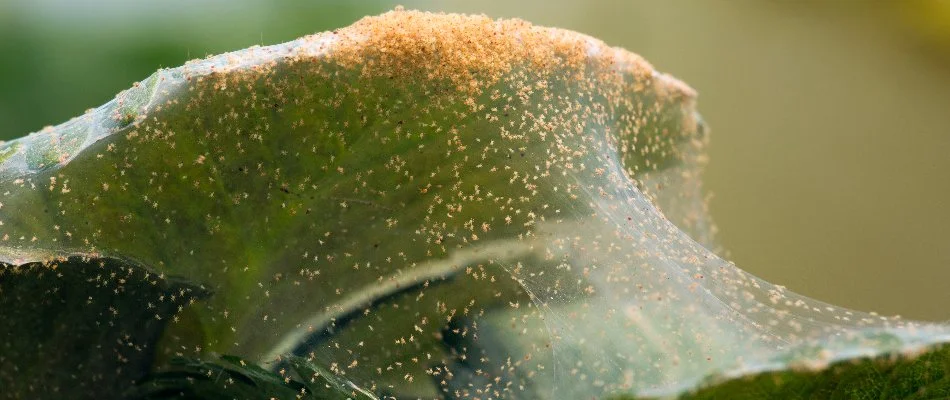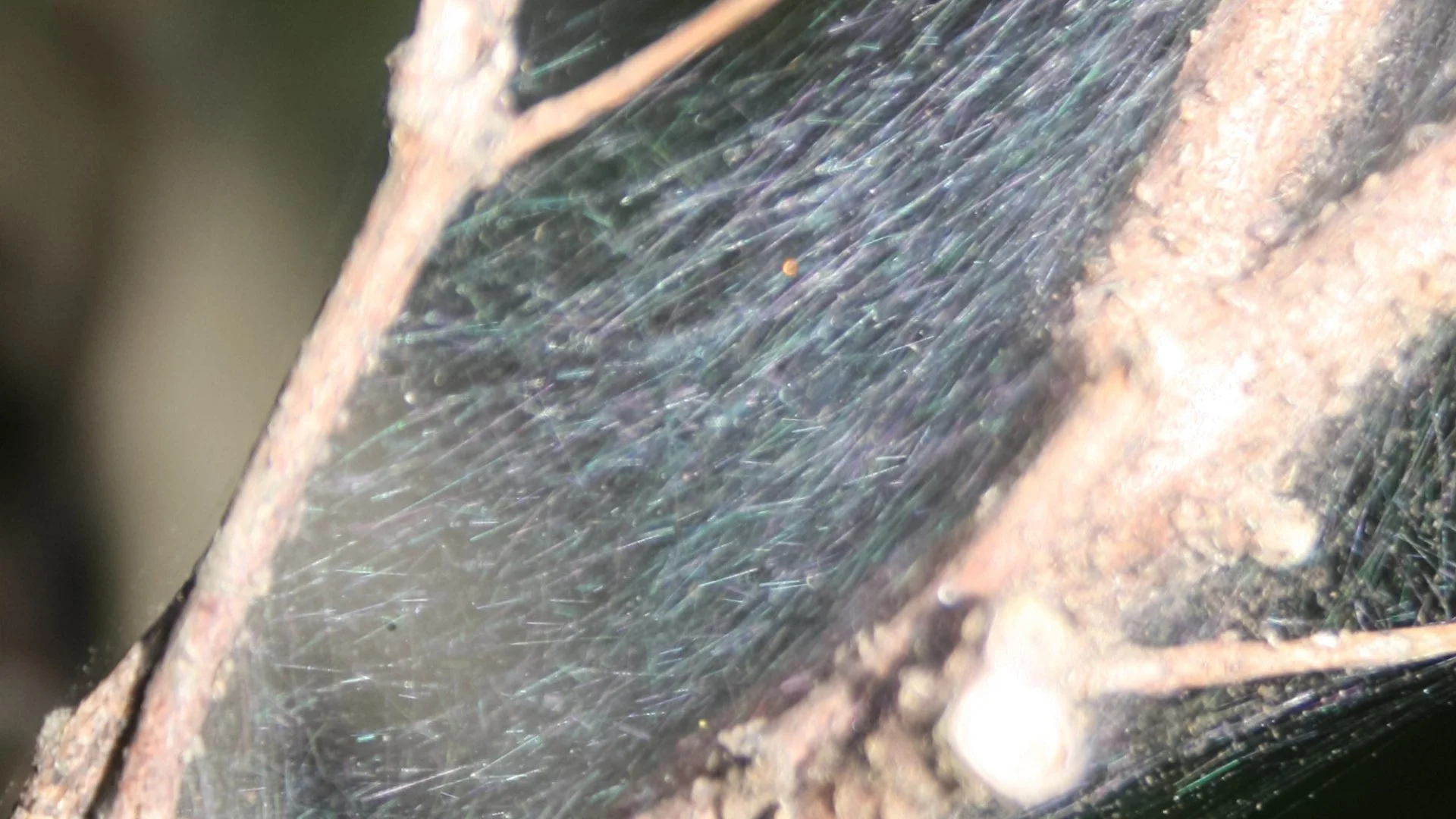Spider mites, while small and seemingly harmless, can pose a significant threat to the health of trees and shrubs on properties across the state of Georgia. These minuscule pests, often unnoticed until it's too late, feed on plant sap, causing leaves to turn yellow and eventually drop. If you suspect a spider mite infestation on your property, it’s important to act promptly to prevent further damage from occurring. Contact tree and shrub care professionals to apply a curative treatment to your infected plants. To prevent future outbreaks, ensure that you are regularly fertilizing your trees and shrubs. You might even want to take extra precautions and have preventative insect control treatments applied to make sure these tiny terrors don’t set up shop in your trees and shrubs again.
What are spider mites and what kind of damage can they cause?

Spider mites may be small, but they can be a big headache for your trees and shrubs. These tiny arachnids, often reddish or yellowish, are notorious plant pests. They're like miniature vampires, using their needle-like mouthparts to suck the juices out of your greenery. What does this mean for your plants? Well, it's like a slow and invisible attack that can lead to some serious damage.
As spider mites feed on your plants, they cause stippling, which appears as tiny yellow or brown specks on the leaves. These specks may seem insignificant, but they can quickly multiply and cover your plants, making them look sickly and unhealthy. If the infestation is left untreated, it can even cause leaves to dry up, turn yellow, and fall off. In severe cases, it can lead to plant death.
What should you do if you suspect a spider mite infestation?
If you suspect your trees and shrubs are playing host to these pesky spider mites, don't panic. There are steps you can take to address the issue and save your greenery. First and foremost, reach out to the professionals. Spider mites can be especially challenging to control, and DIY remedies often fall short.
Contact experienced experts who can assess the extent of the infestation and apply curative treatments. These treatments often involve specialized products to combat the mites effectively. Don't wait too long; the sooner you act, the better your chances of preventing further damage to your plants.
How can you protect your plants from future spider mite infestations?
Preventing future spider mite infestations is just as crucial as treating existing ones. To keep your trees and shrubs safe, consider implementing some preventive measures. Regular fertilization and insect control treatments are great options. A well-fertilized plant is better equipped to withstand mite attacks, as it's healthier and more robust. Moreover, insect control treatments can target not only spider mites but also other potential pests that may harm your greenery.
Get rid of spider mites by scheduling our tree and shrub insect control service.
Shield your precious trees and shrubs from the relentless menace of spider mites and other common pests by taking advantage of our comprehensive tree and shrub insect control service. Our program comprises six visits to your property, during which we will apply both insect control treatments as well as fertilization treatments to keep your plants healthy and free of pests. We offer this service to property owners in Woodstock, Roswell, Alpharetta, and nearby areas of Georgia. Call us today at (833) 444-8873 to schedule our tree and shrub insect control service and ensure the health and beauty of your plants!




Comments (0)
Thanks for your comment!
Thanks for your feedback! Your comments have been successfully submitted! Please note, all comments require admin approval prior to display.
Error submitting comment!
There is a problem with your comment, please see below and try again.